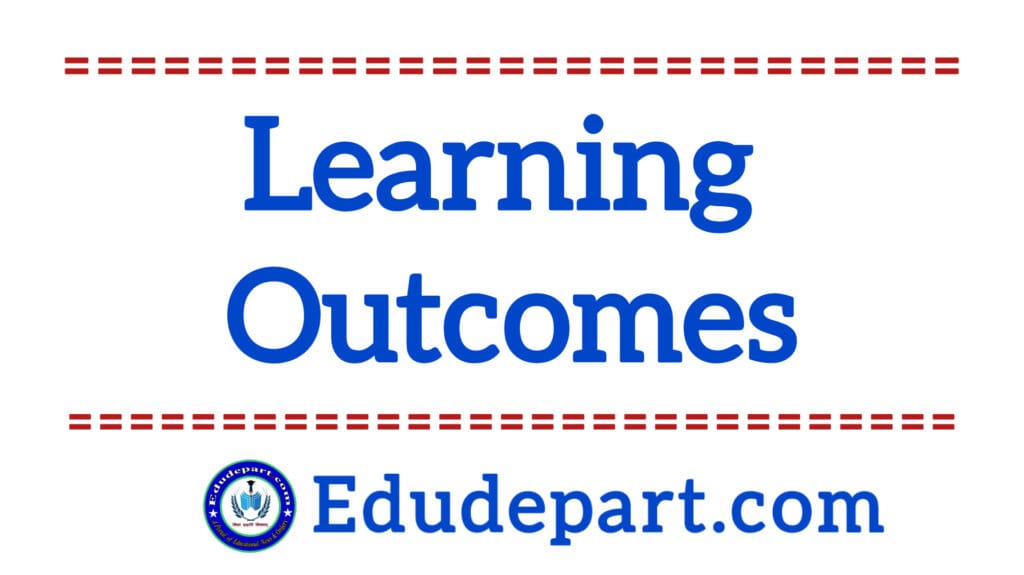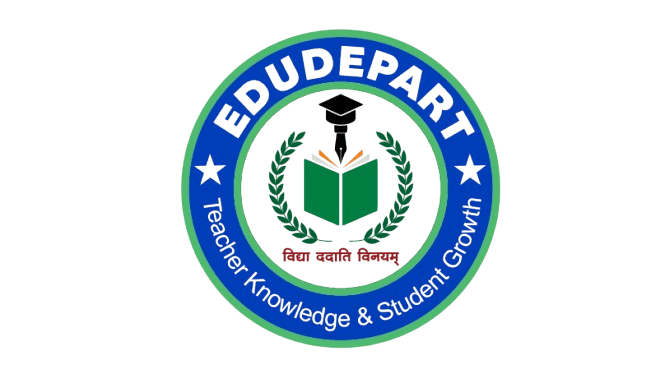Learning Outcomes : “पर्यावरण के उद्देश्य” से संबंधित सीखने के परिणाम निम्नलिखित हो सकते हैं:
- पर्यावरणीय जागरूकता: विद्यार्थी पर्यावरण की वर्तमान स्थिति, मुद्दों और चुनौतियों को समझेंगे।
- पारिस्थितिकी का ज्ञान: पारिस्थितिकी तंत्र और जैव विविधता के महत्व को जानेंगे।
- सतत विकास: सतत विकास के सिद्धांतों को समझेंगे और उनके अनुप्रयोग का ज्ञान प्राप्त करेंगे।
- पर्यावरणीय नीति: पर्यावरण संरक्षण से संबंधित नीतियों और कानूनों के बारे में जानेंगे।
- व्यक्तिगत योगदान: विद्यार्थी अपने दैनिक जीवन में पर्यावरण की सुरक्षा के लिए छोटे-छोटे कदम उठाने के तरीकों को जानेंगे।
- समुदाय में सक्रिय भागीदारी: स्थानीय और वैश्विक पर्यावरणीय पहलों में भाग लेने के लिए प्रेरित होंगे।
- समस्या समाधान कौशल: पर्यावरणीय समस्याओं का विश्लेषण करने और समाधान खोजने के लिए आलोचनात्मक सोच का विकास करेंगे।
- प्रौद्योगिकी का उपयोग: पर्यावरण संरक्षण में आधुनिक प्रौद्योगिकी के उपयोग को समझेंगे।
ये सभी परिणाम विद्यार्थियों को पर्यावरण के प्रति संवेदनशील और जिम्मेदार नागरिक बनाने में सहायक होंगे।
कक्षा 3 पर्यावरण सीखने के प्रतिफल (Class 3 EVS Learning Outcomes)
E301. समीपस्थ परिवेश में उपलब्ध पेड़ों की पत्तियों, तनों एवं छाल को साधारण अवलोकन द्वारा पहचाने जाने वाले लक्षणों (आकार, रंग, बनावट, गंध) के आधार पर पहचानता है।
E302. परिवेश में पाए जाने वाले जन्तुओं एवं पक्षियों को उनके सामान्य लक्षणों के आधार पर पहचानता है।
E303. परिवार के सदस्यों के साथ संबंध तथा उनके आपस के संबंधों को पहचानता है।
E304. अपने घर/शाला/आस-पास की वस्तुओं, संकेतों को पहचानता है।
E305. विभिन्न आयु वर्ग के व्यक्तियों, जन्तुओं और पौधों के लिए पानी तथा भोजन की उपलब्धता एवं घर तथा परिवेश में जल के उपयोग का वर्णन करते हैं।
E306. मौखिक /लिखित / अन्य तरीकों से परिवार के सदस्यों की भूमिका, परिवार का प्रभाव मिलजुलकर रहने की आवश्यकता का वर्णन करते हैं।
E307. वस्तुओं, पक्षियों, जन्तुओं के लक्षणों, गतिविधियों में समानता, अंतर कर पता है।
E308. वर्तमान एवं भूतकाल वस्तुओं तथा गतिविधियों कार्यों में अंतर करता है।
E309. दिशाओं, वस्तुओं की स्थिति, सामान्य नक्शे में जगहों / घर/ कक्षा/शाला को संकेतों/चिन्हों अथवा मौखिक रूप से पहचान पाता है।
E310. दैनिक जीवन की गतिविधियों में वस्तुओं के गुणों तथा मात्राओं का अनुमान लगाता है।
E311. भ्रमण के दौरान विभिन्न तरीकों से एकत्रित की गई वस्तुओं पहचान पाता है।
E312. चित्र, ड्राईंग नक्शा तथा आकृतियाँ बनाता है।
E313. स्थानीय, भीतर तथा बाहर खेले जाने वाले खेलों के नियम तथा सामूहिक कार्यों का अवलोकन करता है।
E314. अच्छे बुरे स्पर्श के आधार के प्रति संवेदनशीलता दिखाता है।

Learning Outcomes, Learning Outcomes
